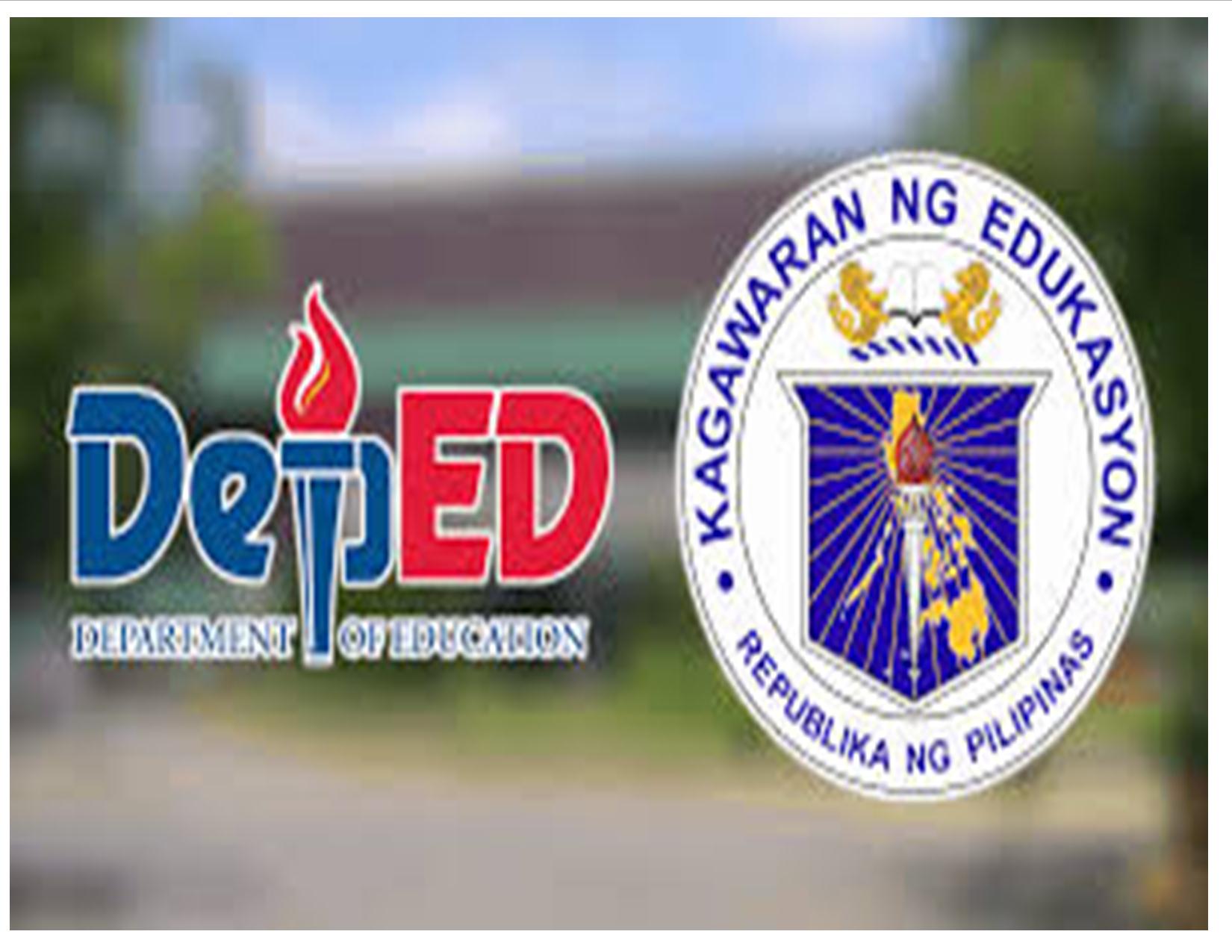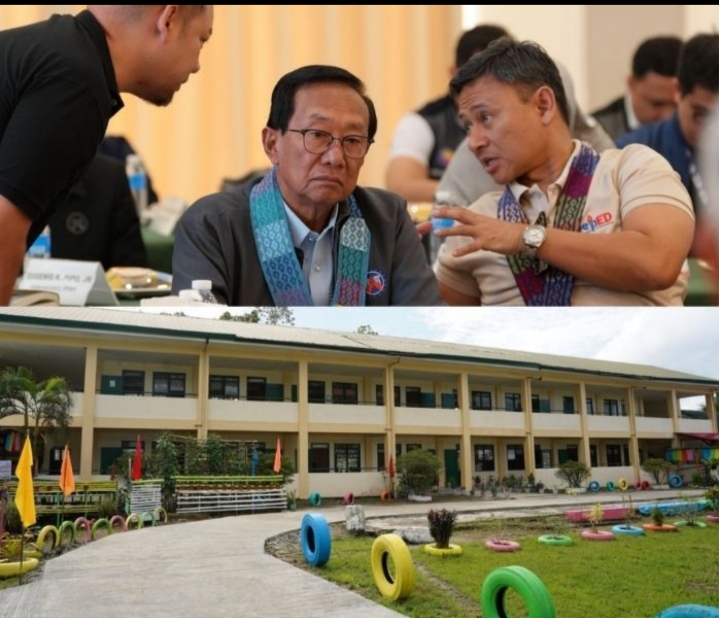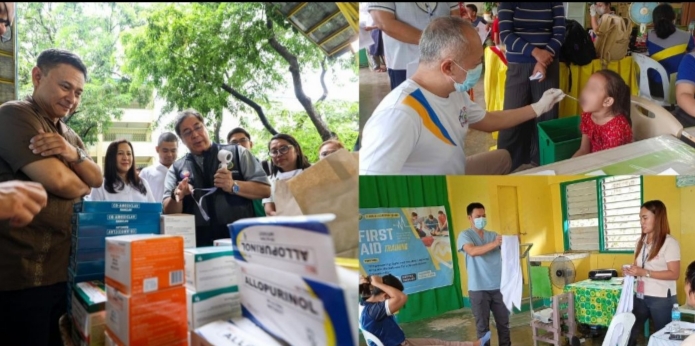
Ang Department of Education o Kagawaran ng Edukasyon


DepEd seeks stronger ties with DPWH, LGUs to build more access roads to schools
MAKATI CITY, 17 July 2025 — The Department of Education (DepEd) is pushing for a stronger partnership with the Department of Public Works and Highways (DPWH) and local government units (LGUs) to construct more access roads to public schools, especially in geographically isolated and disadvantaged areas.
The initiative aligns with President Ferdinand R. Marcos Jr.’s commitment to improving access to essential services through strategic infrastructure and supports DepEd’s broader push to remove physical barriers to learning.
In a formal proposal to DPWH, DepEd recommended the inclusion of access roads to public schools in the department’s programming and investment plans, especially for newly constructed schools with no road access.
Education Secretary Sonny Angara underscored the importance of the initiative, drawing from his recent visits in last mile schools in Mindanao.
“Noong pumunta kami sa Buenavista, Agusan del Norte, nakita natin ang realidad. May mga estudyanteng kailangang tumawid ng ilog at umakyat ng bundok para lang makapasok sa paaralan. Hindi puwedeng puro classrooms lang ang itatayo natin kung wala namang daan papunta roon,” Angara said.
“Kung may farm-to-market road, dapat may road-to-school din,” he added.
DepEd also pointed to DPWH’s successful infrastructure collaborations with other agencies, such as the Tourism Road Infrastructure Program (TRIP) with the Department of Tourism (DOT), the Farm-to-Market Road Development Program (FMRDP) with the Department of Agriculture (DA), and the Roads Leveraging Linkages of Industry and Trade (ROLL-IT) with the Department of Trade and Industry (DTI)) as strong models of interagency coordination.
To support this push, DepEd is proposing a special provision under its FY 2026 Basic Education Facilities Fund (BEFF) that all newly constructed school buildings have corresponding access roads with the DPWH and LGUs to immediately include the construction of roads in cases where none is available.
DepEd said it looks forward to working closely with DPWH and local government units to identify priority areas and ensure that no school and learner is left behind.
END

Healthier schools under PBBM: DepEd, DOH strengthen support for safe, health-promoting campuses
MAKATI CITY, 8 July 2025 — From remote mountain schools to urban classrooms, public schools across the country are seeing tangible improvements through a multi-agency initiative aimed at transforming schools into health-promoting environments, aligned with President Ferdinand R. Marcos Jr.’s directive to ensure safer, healthier spaces for learners.
Central to this effort is the Department of Education’s (DepEd) Healthy Learning Institutions (HLI) program, a nationwide strategy implemented in partnership with the Department of Health (DOH), local government units, and school communities.
In the upland village of Bantay, Ilocos Sur, Taguiporo Elementary School was once a “Last Mile School” with two-star sanitation and limited health services. Now, it stands among the 38 Outstanding Last Mile Schools awardees of the DOH’s Healthy Learning Institutions Awards. After receiving a ₱100,000 grant from the DOH, the school built new gender-sensitive and PWD-friendly toilets, expanded its feeding program and mental health and dental services, and launched a backyard garden that now feeds learners and families.
“Dati, marami sa mga bata ang may sakit at laging umaabsent,” Principal Teresita Peredo said. “Pero ngayon, mas healthy, mas masaya, at mas involved na rin ang mga parents.”
This transformation is just one of more than 1,500 school-level success stories under the OK sa DepEd–HLI initiative, which began in 2022. The program follows a Joint Administrative Order (JAO No. 2022-0001) signed by DepEd, DOH, CHED, DILG, DSWD, TESDA, and LEB. It operationalizes Section 30 of the Universal Health Care Act by designating schools as “healthy settings” based on standards developed with WHO guidance and local policies.
The initiative establishes clear standards across six pillars of school health and well-being, using a self-appraisal system to assess implementation. In 2024, a three-tier recognition system was introduced, certifying schools as ‘Satisfactory,’ ‘Very Satisfactory,’ or ‘Outstanding’ based on their percentage of compliance with the established standards.
To date, more than 1,300 of the participating schools are classified as “Last Mile,” those with limited access to basic facilities and resources. Many have received direct financial support from the DOH to kick-start improvements, ranging from hygiene facilities to mental health training. In Taguiporo, this meant building functional toilets and wash areas.
National onboarding sessions, scheduled this July 14 to 15, are expected to further capacitate school leaders and health officers in implementing the HLI framework. Tools like the School Self-Appraisal Checklist and a shared “Map of Materials” for health promotion are also being distributed nationwide.
While the program currently runs on a provisional setup, the Department is finalizing a DepEd Order to institutionalize the HLI framework in all public schools. The Order, set for release this year, will formalize the three-star rating system and embed the standards within DepEd’s broader Learner Support Framework.
“Hindi lang dapat ligtas sa sakuna ang paaralan. Dapat ligtas din sa gutom, sa sakit, at sa kawalan ng suporta. Sa Healthy Learning Institutions program, tinitiyak nating may sapat na kaalaman, kalusugan, at malasakit sa bawat silid-aralan,” Education Secretary Sonny Angara said.
Future expansions include joint DOH-DepEd-DILG guidelines on school-based reproductive and mental health services, and emergency protocols for disease outbreaks, reinforcing schools as the frontlines of both education and well-being.
In the words of Principal Peredo, “Makikita mo sa ngiti ng mga bata ang tagumpay.”
With HLI, schools are nurturing health as a shared responsibility with the community.
END